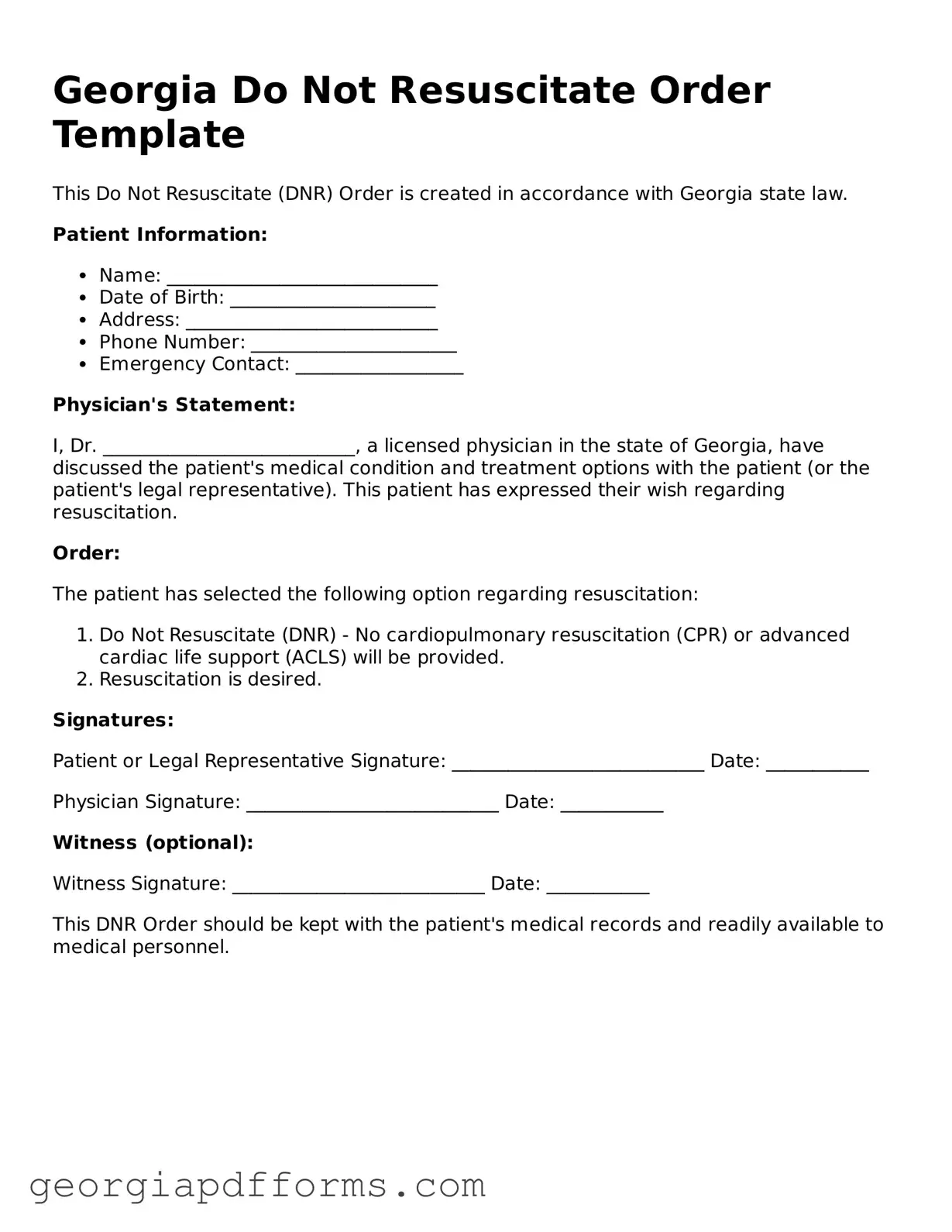What is a Do Not Resuscitate (DNR) Order in Georgia?
A Do Not Resuscitate Order is a legal document that allows an individual to refuse resuscitation efforts in the event of cardiac arrest or respiratory failure. In Georgia, this order is typically used by patients who have a terminal illness or a condition that significantly limits their quality of life. The DNR order ensures that medical personnel respect the patient’s wishes regarding resuscitation efforts during emergencies.
Who can request a DNR Order in Georgia?
In Georgia, a DNR Order can be requested by an adult patient who is capable of making their own medical decisions. If the patient is unable to make decisions, a legally authorized representative, such as a family member or a designated healthcare proxy, may request the order on their behalf. It is essential that the individual requesting the order understands the implications and is acting in the best interest of the patient.
How is a DNR Order created in Georgia?
To create a DNR Order in Georgia, the patient or their representative must complete the official Georgia DNR Order form. This form must be signed by a physician who is licensed to practice medicine in the state. The completed form should then be kept in a place that is easily accessible to medical personnel, such as in the patient’s medical records or at their residence.
Is a DNR Order valid in all healthcare settings?
Yes, a properly executed DNR Order is valid across various healthcare settings in Georgia, including hospitals, nursing homes, and at home. However, it is crucial for patients and their families to ensure that the order is communicated clearly to all healthcare providers involved in the patient’s care. This helps avoid any confusion during emergencies.
Can a DNR Order be revoked?
Yes, a DNR Order can be revoked at any time by the patient or their authorized representative. To revoke the order, the individual should inform their healthcare provider and may need to complete a written revocation form. It is important to ensure that all relevant parties, including family members and healthcare providers, are made aware of the revocation to prevent any misunderstandings.
What happens if a DNR Order is not followed?
If a DNR Order is not followed, it can lead to unwanted resuscitation efforts, which may be distressing for the patient and their family. In such cases, healthcare providers may face legal consequences for not adhering to the patient’s wishes. It is vital for patients and families to advocate for their rights and ensure that the DNR Order is respected in all situations.
Can a DNR Order be combined with other advance directives?
Yes, a DNR Order can be combined with other advance directives, such as a living will or a healthcare power of attorney. These documents work together to provide a comprehensive view of the patient’s wishes regarding medical treatment and end-of-life care. It is advisable to discuss these documents with a healthcare provider to ensure that all wishes are clearly articulated and legally binding.
Where can I obtain a Georgia DNR Order form?
The Georgia DNR Order form can be obtained from various sources, including healthcare providers, hospitals, and online through the Georgia Department of Public Health website. It is essential to use the official form to ensure that it meets all legal requirements and is recognized by medical professionals across the state.

